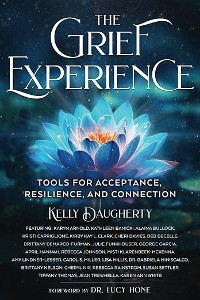I know from personal experience how difficult it can be to seek out help or even to know help is needed. I suffered a traumatic loss when I was in college. Despite being immersed in psychology and sociology classes, I did not recognize that I was depressed.Continue reading→
What is Emotionally Focused Therapy?
 All too often, when we experience conflict with other people, we focus on the surface issues instead of exploring our underlying emotional experiences. Instead of looking at our feelings, we look at our flaws or the flaws of others. As a result, patterns of disconnection continue to repeat themselves because we never address the root cause of our conflicts. Communication remains hostile and unclear and strained relationships are allowed to fester.
All too often, when we experience conflict with other people, we focus on the surface issues instead of exploring our underlying emotional experiences. Instead of looking at our feelings, we look at our flaws or the flaws of others. As a result, patterns of disconnection continue to repeat themselves because we never address the root cause of our conflicts. Communication remains hostile and unclear and strained relationships are allowed to fester.
Emotionally-Focused Therapy (EFT) is a therapeutic approach that seeks to get to the heart of the matter, helping individuals, couples, and families communicate more clearly and directly and break out of stuck patterns. It is a strengths-based approach, since it is based on the belief that there are always deeper reasons (many of them good) for why we do what we do in relationships. The goal of EFT is to uncover what these deeper reasons are, allowing people to live more in tune with their emotions and enjoy healthier communication with their loved ones.
How Effective Is EFT And Who Can It Help?
The psychologist Sue Johnson developed Emotionally Focused Therapy in the 1980s. There is extensive clinical research backing the effectiveness of EFT and it has been studied with a wide variety of couples in many different settings. In fact, the American Psychological Association considers EFT the gold standard of couples counseling. Since 2000, no other couples intervention has demonstrated more successful results than EFT.*
Although the approach is most famous for its ability to help couples, EFT can also be used with individuals and families. It has been utilized successfully with combat veterans, interabled couples, survivors of childhood trauma, and many other client populations. As an EFT practitioner, I use this model to help people address depression, anxiety, childhood trauma, relationship distress, and feeling stuck in life.
Part of what makes EFT so effective is that it’s an experiential approach, which means that it’s not just front-brain cognitive work and intellectual discussion. It’s deeper than that. EFT requires emotional engagement and promotes increased awareness of your emotional world. Instead of simply providing quick fixes and surface solutions, it gets to the why behind your actions and uncovers the emotional wounds, attachment needs, and deeper insecurities underlying your struggles.
How Does EFT Work?
In sessions with you, I will actively listen to your concerns and try to discern where there are recurring negative patterns in your life. I’ll help you identify your emotional experience and figure out how it’s connected to what’s happening between you and your significant other (or family member). Together, we’ll slow down, pay attention to what you feel in moments of conflict, and then use the knowledge we gain to develop healthier ways of communicating.
For example, let’s say you get upset when you come home from work and your partner hasn’t done the dishes or folded the laundry. You might be tempted to react by saying, “You never fold the laundry or do the dishes,” thus putting the focus on your partner’s faults. What EFT does is flip this mindset on its head and look at what’s really bothering you. When your partner doesn’t do the dishes or fold the laundry, maybe you start to worry that they don’t care about your relationship. This causes you to react in fear rather than love.
 In this way, EFT can help you and your significant other get to the bottom of your conflict and stop getting hung up on surface issues (e.g., the dishes and the laundry). You can increase your awareness of your internal experience by connecting with what’s going on inside of you. This can help you communicate your feelings more clearly, directly, and carefully, reducing the potential for hostile interactions. Your partner will have the opportunity to hear more about your emotional world, making it easier for them to empathize with you and understand where you’re coming from.
In this way, EFT can help you and your significant other get to the bottom of your conflict and stop getting hung up on surface issues (e.g., the dishes and the laundry). You can increase your awareness of your internal experience by connecting with what’s going on inside of you. This can help you communicate your feelings more clearly, directly, and carefully, reducing the potential for hostile interactions. Your partner will have the opportunity to hear more about your emotional world, making it easier for them to empathize with you and understand where you’re coming from.
For couples and family members in sessions together, this work can be done in real time so that each person leaves the session with a clearer idea of how the other feels. For individuals, I often help them learn to share with an imagined other, and sometimes I use my own presence to respond and engage with them. I always customize my approach to EFT depending on who I’m working with and how many people are involved in sessions.
What I love about EFT is that it’s all about rupture and repair. Every important relationship will have ruptures, not just because we are imperfect, but also because the other person matters to us. There is comfort in knowing that relationships don’t have to be perfect or conflict-free. EFT focuses on how we can repair and come back together when ruptures happen.
I have experienced this repair process personally and professionally and I’m grateful to the many people who’ve engaged in it with me. My relationships have become stronger as a result, and I’m confident that yours can, too!
My Background As An EFT Therapist
I’ve been practicing Emotionally Focused Therapy as my primary approach since 2010 and I’ve been a certified EFT therapist since 2013. I trained under Sue Johnson, the founder of EFT herself, in addition to many other EFT experts. In addition to being an EFT therapist, I am a certified EFT supervisor who helps therapists work toward EFT licensure and certification. I also teach an EFT class at the Denver Family Institute.
In many ways, EFT is the therapeutic model that simply makes the most sense to me. Early on in my career, I started out helping foster children and adopted children and utilized attachment theory in my work with them. At the same time, my training as a social worker and marriage and family therapist taught me to see relationship problems from a family systems perspective instead of viewing them as individual pathologies.
When I learned about EFT, I found that it put these theories together and combined the best of both worlds. It gave me a clear map of how to work with individuals, couples, and families. As soon as I became certified in EFT and started using it with my clients, I saw greater changes and progress than I had previously seen. EFT is consistent with me as a person and as a therapist, allowing me to be my authentic self in my work with clients.
EFT Can Help You Improve Your Relationships With Others And Yourself
Relationships are often a source of pain, but they can also be a source of profound growth and healing. The beauty of EFT is that it can help you find the potential for growth and healing within your pain. To learn more about my approach to Emotionally-Focused Therapy, you can go to the contact page or call 303-503-5295.
*https://iceeft.com/eft-research-3/
Recent posts
Get the most out of your work day
There are many emotional issues that find a corner in our heart, and refuse to die down. With time, these...Continue reading→
It is never too late to go to therapy
We define the goals and objectives of the counselling sessions in a very transparent manner to help patients overcome their...Continue reading→











